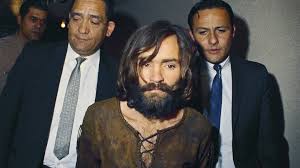
Introduction
Charles Manson remains one of the most infamous figures in American history, with a legacy of crime and manipulation that resonates even decades after his death in 2017. His role in orchestrating a series of brutal murders in the late 1960s has left an indelible mark on American culture, igniting discussions around the nature of evil, influence, and the psyche of infamous individuals. Understanding Manson’s life and the events surrounding his criminal activities is crucial as they highlight the vulnerabilities in society regarding mental manipulation and mass hysteria.
The Murders and Cult of Personality
Manson rose to notoriety through his leadership of the so-called Manson Family, a cult that engaged in a string of violent crimes in California. The most notorious of these was the 1969 Tate-LaBianca murders, which claimed the lives of actress Sharon Tate and six others. Manson believed in an apocalyptic race war he referred to as “Helter Skelter,” a phrase he appropriated from The Beatles song. By exploiting the counterculture movement of the 1960s and the disillusionment of youth, Manson was able to amass a following of disenfranchised individuals willing to commit heinous acts in his name.
The criminal trial that ensued captivated the nation, revealing the disturbing dynamic of Manson’s manipulation. In 1971, he was convicted of first-degree murder and conspiracy to commit murder after an extensive trial highlighting the psychological hold he had over his followers. Manson’s charisma, coupled with his erratic behavior, made him a media sensation, further embedding him into the public consciousness.
Impact on Culture and Society
In the years following the murders, Manson’s legacy has endured in various forms of media, from documentaries and films to books that seek to analyze his impact on society. His case also prompted widespread fear and fascination, leading to discussions about the nature of cults and the potential for individuals to exert disproportionate influence over vulnerable people. The term ‘Manson Family’ has become synonymous with the dangers of cult behavior, with many experts citing his case in studies of mass manipulation and psychological control.
Conclusion
Charles Manson’s legacy is one of both horror and intrigue, serving as a chilling reminder of the depths of human manipulation and the capacity for violence. As discussions about the social and psychological implications of his actions continue, it becomes clear that the fascination with Manson extends beyond mere crime; it speaks to broader societal issues. For readers today, Manson’s life encourages reflection on the vulnerabilities within social systems, the allure of charismatic leaders, and the ongoing relevance of understanding psychological manipulation. Learning from such historical figures is crucial as society navigates the complexities of human behavior and group dynamics in the present and future.



